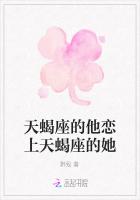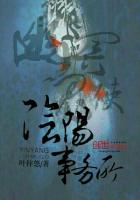For a time Karenin said very little, and Kahn, the popular poet, talked of passionate love. He said that passionate, personal love had been the abiding desire of humanity since ever humanity had begun, and now only was it becoming a possible experience. It had been a dream that generation after generation had pursued, that always men had lost on the verge of attainment. To most of those who had sought it obstinately it had brought tragedy. Now, lifted above sordid distresses, men and women might hope for realised and triumphant love. This age was the Dawn of Love....
Karenin remained downcast and thoughtful while Kahn said these things. Against that continued silence Kahn's voice presently seemed to beat and fail. He had begun by addressing Karenin, but presently he was including Edith Haydon and Rachel Borken in his appeal. Rachel listened silently; Edith watched Karenin and very deliberately avoided Kahn's eyes.
'I know,' said Karenin at last, 'that many people are saying this sort of thing. I know that there is a vast release of love-****** in the world. This great wave of decoration and elaboration that has gone about the world, this Efflorescence, has of course laid hold of that. I know that when you say that the world is set free, you interpret that to mean that the world is set free for love-******. Down there,--under the clouds, the lovers foregather. I know your songs, Kahn, your half-mystical songs, in which you represent this old hard world dissolving into a luminous haze of love--sexual love.... I don't think you are right or true in that. You are a young, imaginative man, and you see life--ardently--with the eyes of youth. But the power that has brought man into these high places under this blue-veiled blackness of the sky and which beckons us on towards the immense and awful future of our race, is riper and deeper and greater than any such emotions....
'All through my life--it has been a necessary part of my work--I have had to think of this release of sexual love and the riddles that perfect ******* and almost limitless power will put to the soul of our race. I can see now, all over the world, a beautiful ecstasy of waste; "Let us sing and rejoice and be lovely and wonderful." . . . The orgy is only beginning, Kahn.... It was inevitable--but it is not the end of mankind....
'Think what we are. It is but a yesterday in the endlessness of time that life was a dreaming thing, dreaming so deeply that it forgot itself as it dreamt, its lives, its individual instincts, its moments, were born and wondered and played and desired and hungered and grew weary and died. Incalculable successions of vision, visions of sunlit jungle, river wilderness, wild forest, eager desire, beating hearts, soaring wings and creeping terror flamed hotly and then were as though they had never been. Life was an uneasiness across which lights played and vanished. And then we came, man came, and opened eyes that were a question and hands that were a demand and began a mind and memory that dies not when men die, but lives and increases for ever, an over-mind, a dominating will, a question and an aspiration that reaches to the stars.... Hunger and fear and this that you make so much of, this ***, are but the elementals of life out of which we have arisen. All these elementals, I grant you, have to be provided for, dealt with, satisfied, but all these things have to be left behind.'
'But Love,' said Kahn.
'I speak of sexual love and the love of intimate persons. And that is what you mean, Kahn.'
Karenin shook his head. 'You cannot stay at the roots and climb the tree,' he said....
'No,' he said after a pause, 'this sexual excitement, this love story, is just a part of growing up and we grow out of it. So far literature and art and sentiment and all our emotional forms have been almost altogether adolescent, plays and stories, delights and hopes, they have all turned on that marvellous discovery of the love interest, but life lengthens out now and the mind of ***** humanity detaches itself. Poets who used to die at thirty live now to eighty-five. You, too, Kahn! There are endless years yet for you--and all full of learning.... We carry an excessive burden of *** and sexual tradition still, and we have to free ourselves from it. We do free ourselves from it. We have learnt in a thousand different ways to hold back death, and this ***, which in the old barbaric days was just sufficient to balance our dying, is now like a hammer that has lost its anvil, it plunges through human life. You poets, you young people want to turn it to delight. Turn it to delight. That may be one way out. In a little while, if you have any brains worth thinking about, you will be satisfied, and then you will come up here to the greater things. The old religions and their new offsets want still, I see, to suppress all these things. Let them suppress. If they can suppress. In their own people. Either road will bring you here at last to the eternal search for knowledge and the great adventure of power.'
'But incidentally,' said Rachel Borken; 'incidentally you have half of humanity, you have womankind, very much specialised for--for this love and reproduction that is so much less needed than it was.'
'Both ***es are specialised for love and reproduction,' said Karenin.
'But the women carry the heavier burden.'
'Not in their imaginations,' said Edwards.
'And surely,' said Kahn, 'when you speak of love as a phase--isn't it a necessary phase? Quite apart from reproduction the love of the ***es is necessary. Isn't it love, sexual love, which has released the imagination? Without that stir, without that impulse to go out from ourselves, to be reckless of ourselves and wonderful, would our lives be anything more than the contentment of the stalled ox?'
'The key that opens the door,' said Karenin, 'is not the goal of the journey.'

